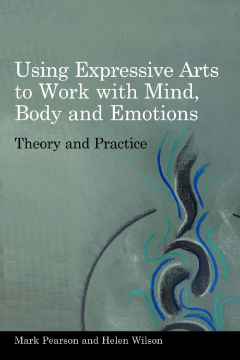
Additional Information
Book Details
Abstract
Using Expressive Arts to Work with Mind, Body and Emotions combines theory, research and activities to produce practical suggestions for enhancing client participation in the therapy process. It surveys the literature on art therapy; somatic approaches; emotion-activating models; use of music, writing and dreamwork; and the implications of the new findings in neuroscience.
The book includes step-by-step instructions for implementing expressive therapies techniques, and contains a wide range of experiential activities that integrate playful yet powerful tools that work in harmony with the client's innate ability for self-healing. The authors discuss transpersonal influences along with the practical implications of both emotion-focused and attachment theories.
Using Expressive Arts to Work with Mind, Body and Emotions is an essential guide to integrating creative arts-based activities into counselling and psychotherapy and will be a useful manual for practitioners, academics and student counsellors, psychologists, psychotherapists, social workers and creative arts therapists.
Mark Pearson is Director of the Expressive Therapies Institute of Australia and a lecturer in Counselling at the University of Notre Dame Australia in Fremantle, Western Australia. Mark is currently completing PhD research on the benefits of using arts-based programs for wellbeing in schools. He is the author of Emotional Healing & Self-Esteem - Inner-Life Skills for Children & Adolescents and co-author of Emotional Release For Children. Helen Wilson is also a lecturer in Counselling at the University of Notre Dame Australia, and an expressive therapist in private practice.
Pearson and Wilson have done an exceptional job with this engaging test, which is easily accessible at undergraduate level, whilst undoubtedly offering value to the experienced professional...They have crafted a text that can be both read cover to cover in a single sitting whilst at the same time being referred to over time for novel exercises.
Aspire, www.ClinPsy.org.uk
A key tenet appears to be that releasing emotion frees the mind to be creative and responsive in meeting the challenges of life. So there is an emphasis on how emotions affect thought, which is refreshing after many years of emphasis on how thinking affects emotions. This book provides a comprehensive review of a number of therapies, and in doing so is a useful reference book. It would provide a good overview for someone new to the field.
Dramatherapy
